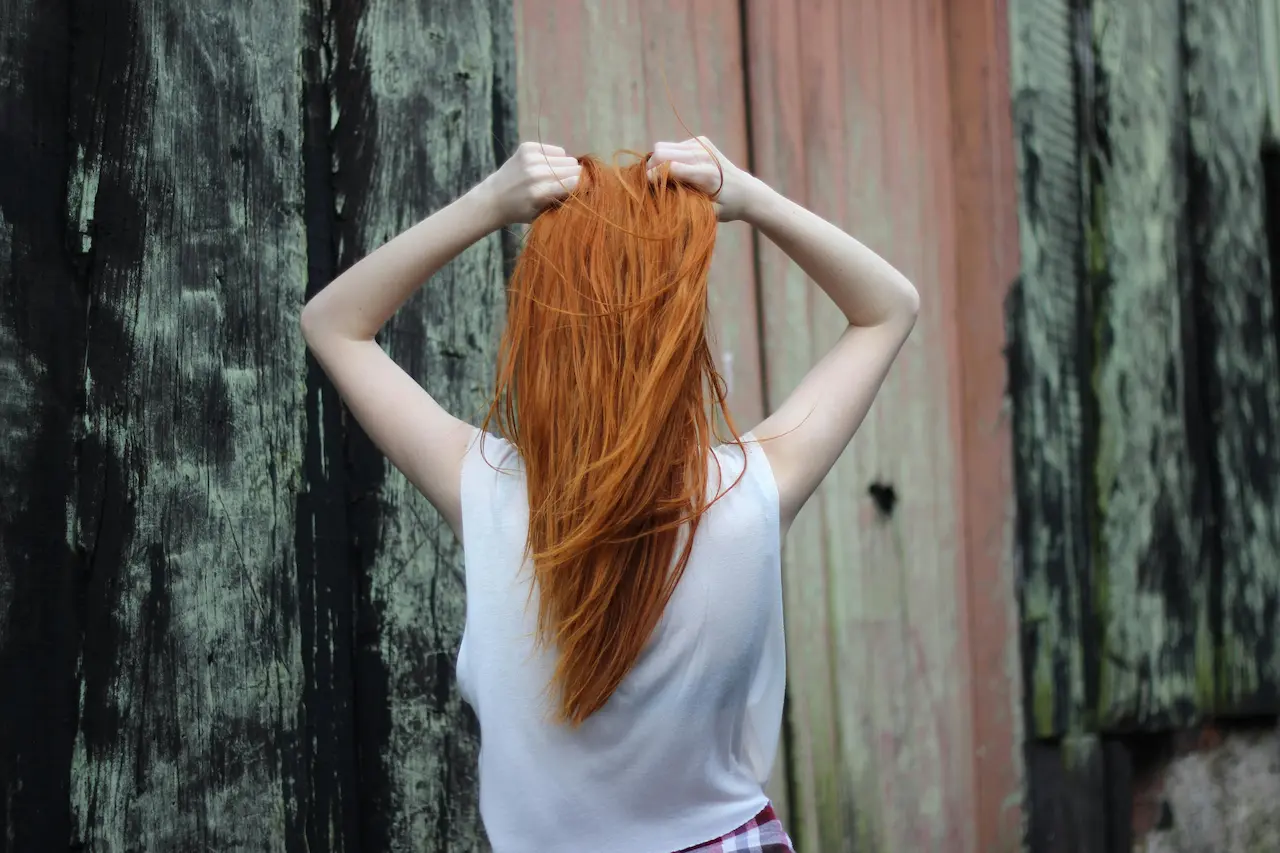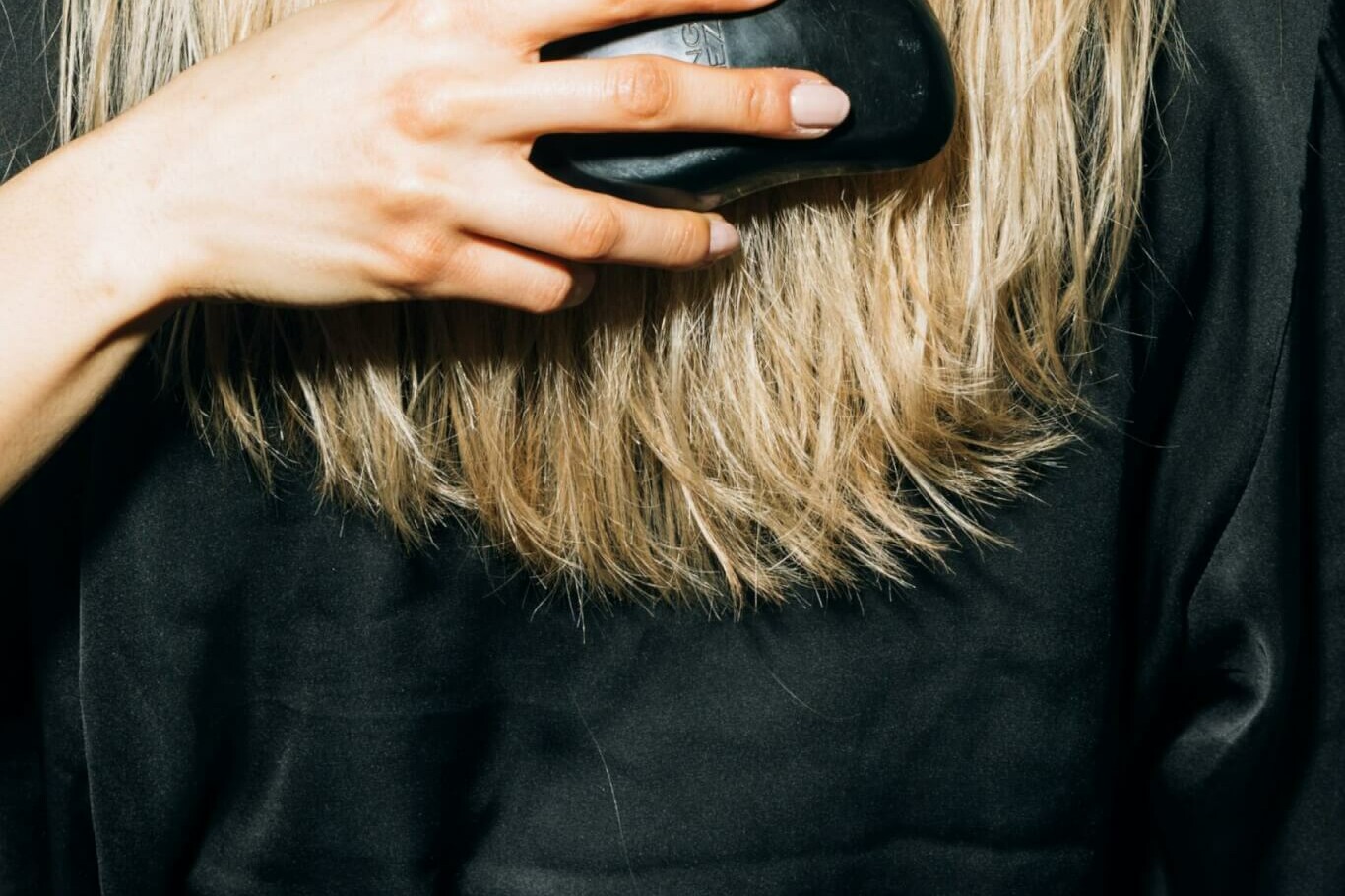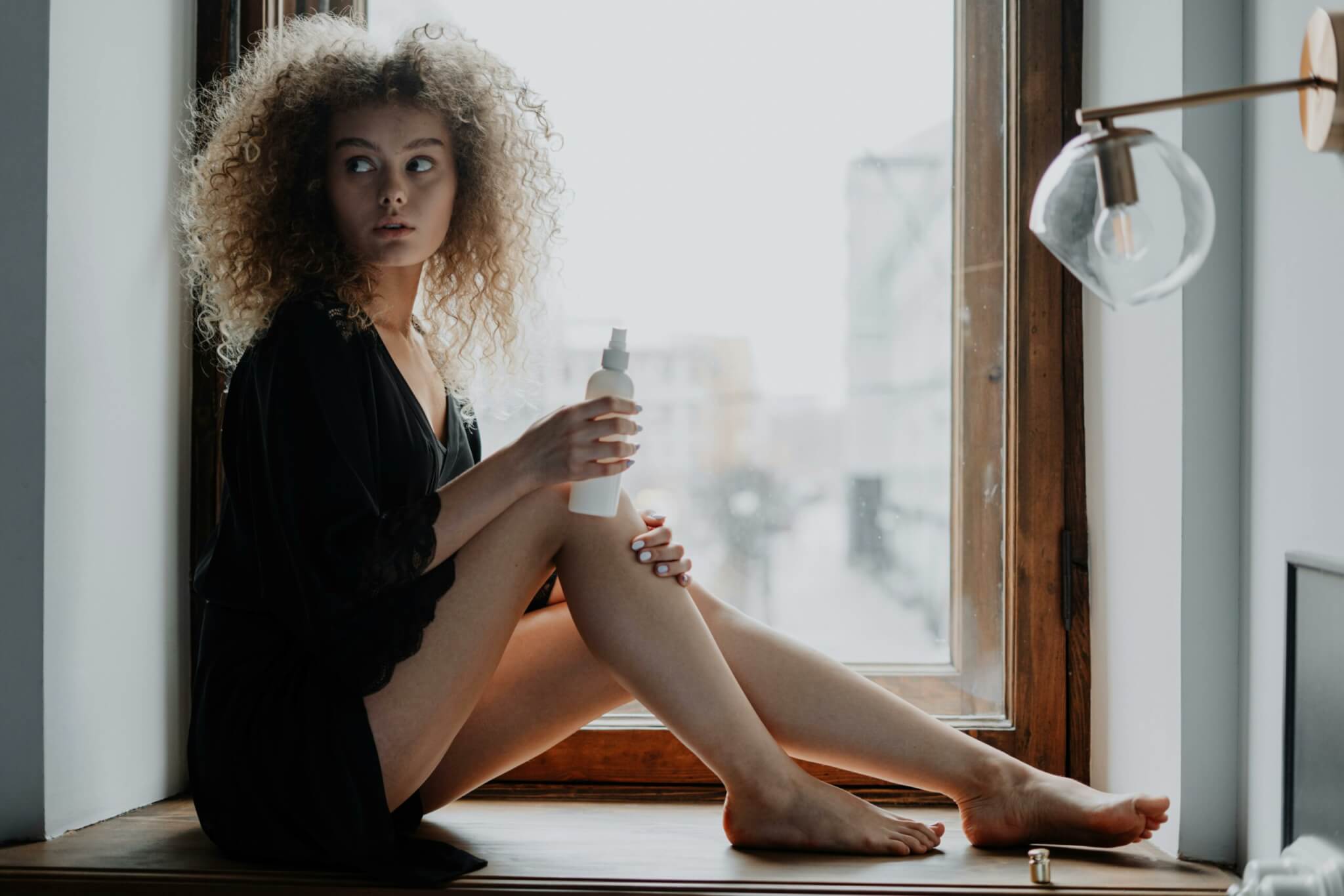Understanding Menopause and Hair Changes
Menopause typically occurs between the ages of 45 and 55, with the average age being around 51. It is characterized by a decline in estrogen and progesterone, two key hormones that play a role in maintaining hair health. As these hormones decrease, several hair-related changes may occur:
1. Thinning Hair
The most common complaint during menopause is thinning hair. Estrogen helps hair follicles stay in the growth phase longer, but as estrogen levels drop, hair follicles may spend more time in the resting phase, resulting in thinner hair.
2. Dryness and Brittle Hair
Lower estrogen levels can also lead to dry and brittle hair. Reduced sebum production, the scalp’s natural oil, can contribute to this problem, leaving hair more prone to breakage and split ends.
3. Hair Loss
Some women may experience noticeable hair loss during menopause, known as androgenetic alopecia. This condition is influenced by genetics and hormonal changes and often results in a widening part and receding hairline.
Tips and Strategies for Optimal Hair Health
Maintaining healthy hair during menopause requires a combination of lifestyle changes, dietary adjustments, and hair care practices. Here are some strategies to optimize your hair health:
1. Balanced Diet
A well-balanced diet is essential for healthy hair. Ensure you’re getting adequate protein, vitamins (especially B-complex vitamins and vitamin D), and minerals like iron and zinc. These nutrients support hair growth and strength.
2. Hormone Replacement Therapy (HRT)
Consult with a healthcare professional about hormone replacement therapy if you’re comfortable with it. HRT can help mitigate some of the hormonal imbalances that affect hair health.
3. Hair Care Routine
Revise your hair care routine to cater to your changing hair needs. Use sulfate-free shampoos and conditioners, and avoid excessive heat styling. Gently massage your scalp to stimulate blood flow and promote hair growth.
4. Stress Management
Stress can exacerbate hair problems. Practice stress-reduction techniques like meditation, yoga, or deep breathing exercises to promote overall well-being and hair health.
5. Supplements
Consider supplements like biotin, collagen, and omega-3 fatty acids, which can support hair growth and reduce dryness.
6. Scalp Health
A healthy scalp is crucial for healthy hair. Regularly exfoliate your scalp to remove dead skin cells and improve circulation. Scalp massages with essential oils can also help.
7. Gentle Styling
Avoid tight hairstyles that pull on your hair. Opt for loose styles and avoid excessive use of hairpins or elastic bands that can weaken the hair shaft.
8. Regular Trims
Keep your hair trimmed regularly to prevent split ends and breakage. This won’t make your hair grow faster but will maintain its overall health.
Conclusion
Menopause may bring about changes in hair health, but with the right strategies and lifestyle adjustments, you can optimize the health and appearance of your hair during this phase. A balanced diet, appropriate hair care, stress management, and considering hormonal therapy are all essential components of maintaining beautiful and healthy hair throughout menopause.
References:
-
- American Academy of Dermatology Association. (n.d.). Hair loss: Who gets and causes. https://www.aad.org/public/diseases/hair-loss/causes/women
- Mayo Clinic. (2021). Menopause. https://www.mayoclinic.org/diseases-conditions/menopause/symptoms-causes/syc-20353397
- Harvard Health Publishing. (2018). Treating female pattern hair loss. https://www.health.harvard.edu/womens-health/treating-female-pattern-hair-loss
Related Articles
September 6, 2025
Scalp Barrier 101 — How to Rebuild What Over-Cleansing Breaks
Your scalp is more than just the skin under your hair — it’s a living…
November 15, 2024
The Art of Detangling: How to Protect Your Wet Hair from Breakage and Split Ends
Detangling wet hair is a common part of many people’s hair care routine, yet…
November 12, 2024
The Hidden Risks of Dry Shampoo: How Overuse Can Impact Your Scalp Health and Hair Growth
Dry shampoo has become a beauty staple for many people, offering a quick and…




